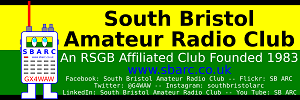UNESCO issued a joint statement on World Radio Day addressing the recent moves by some car makers to remove AM radio from electric vehicles in the US and abroad.
The UNESCO Proclamation affirms radio as a vital medium for upholding the freedom of opinion and expression as outlined in Article 19 of the United nations’ Universal Declaration of Human Rights. For the sake of news, entertainment and education across the globe, the UN’s arts, sciences and culture arm calls for the preservation of analogue and digital radio signals.
“Studies have repeatedly shown that radio has the greatest trust, with most citizens rating it above television, the internet, social networks or the written press. Radio is a triumph of accessibility, immediacy and intimacy, and there’s a strong public-interest case for protecting it and our access to it” says the call to action.
UNESCO goes on to call for a collective effort from governments, regulatory bodies, the technology and automotive industries, and the global radio community to implement safeguards that protect radio. The message is cosigned by fourteen other organizations, including the World Radio Alliance, the International Association of Broadcasting and the International Radio and Television Union among others.
In the United States, the battle goes on to save AM radio in cars as the bipartisan AM For Every Vehicle Act awaits a vote on the Senate floor. The bill, which would require all automobiles made and sold in the US to carry AM radio as a safety feature, currently has 46 sponsors in the Senate and 207 in the House of Representatives.
The cause has been championed to great effect by the National Association of Broadcasters (NAB), with a recent report backing up UNESCO’s message about the importance of radio in the automobile as a safety measure.
Of course, whilst these campaigns make valuable points and access to free to air broadcasts should be maintained, they will only be of value for as long as there are: AM, FM or DAB Free to Air signals to be received. Closure of stations will ultimately remove the need for any kind of broadcast receiver in any type of vehicle, and stations will only remain viable as long as there is listenership. Therefore, the salvation remains in our hands to continue to listen to free-to-air radio broadcasts using traditional receivers and not rely on an internet intermediary.

